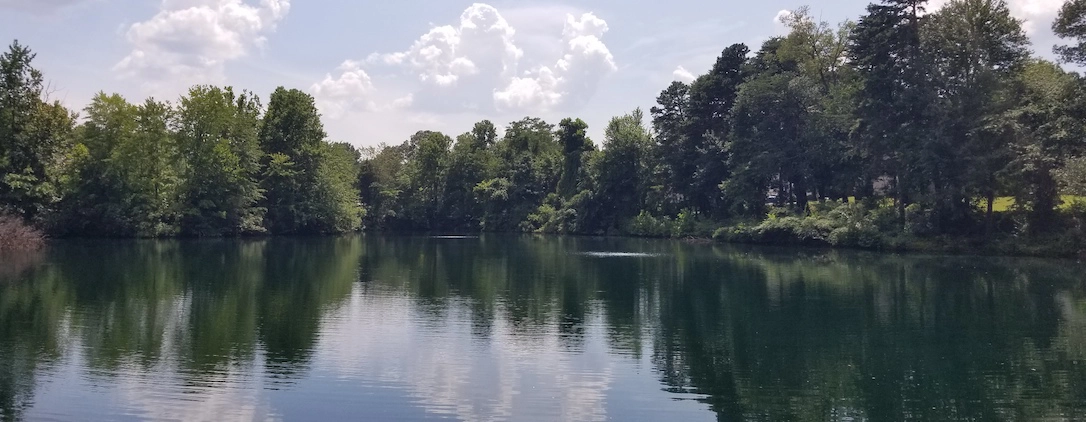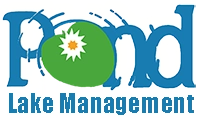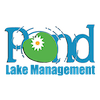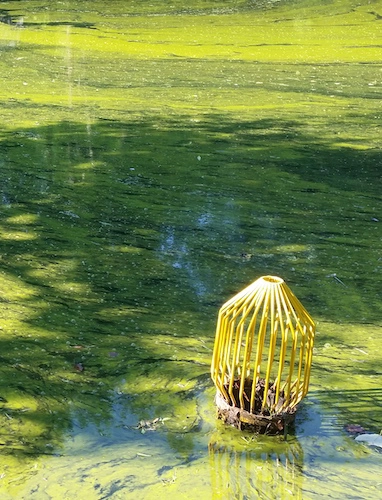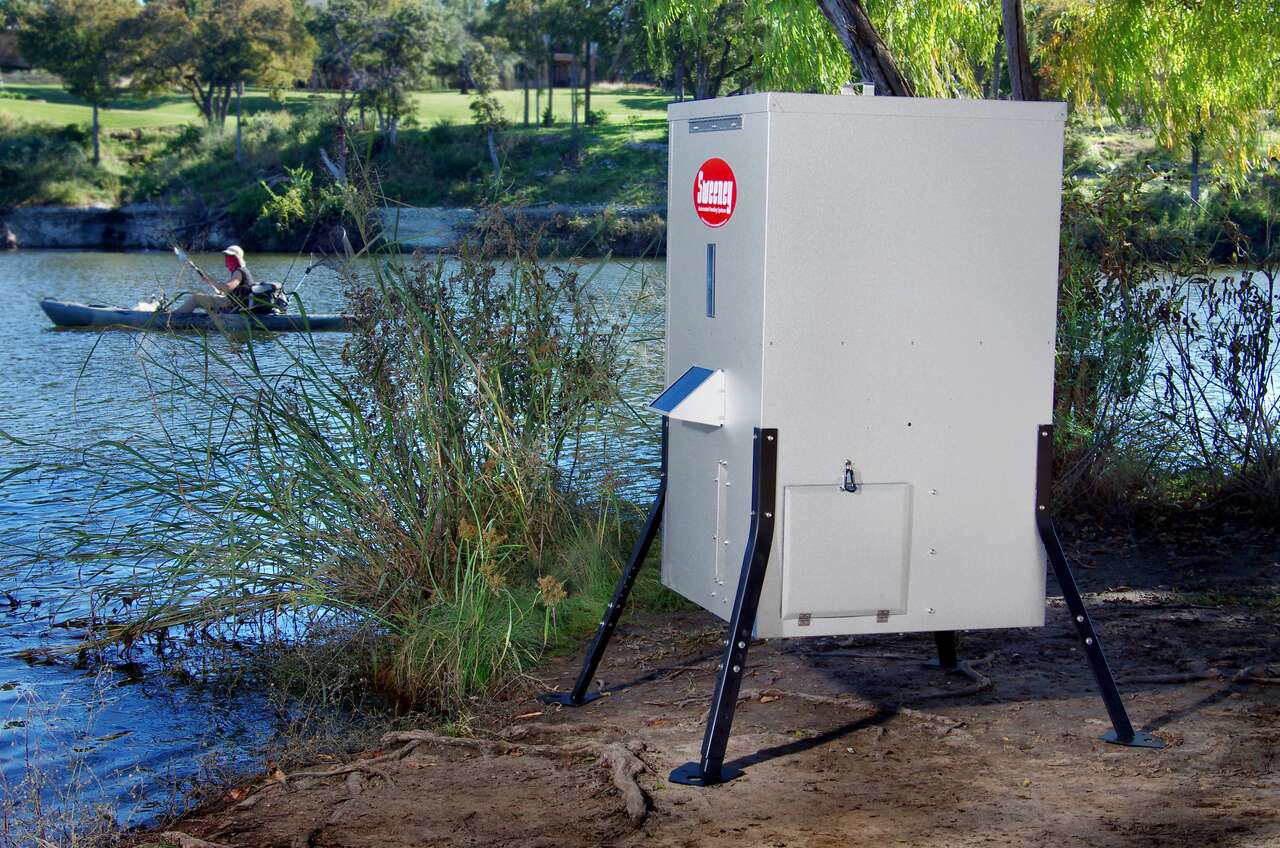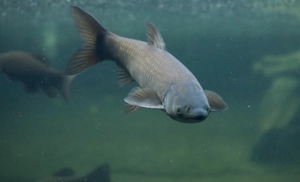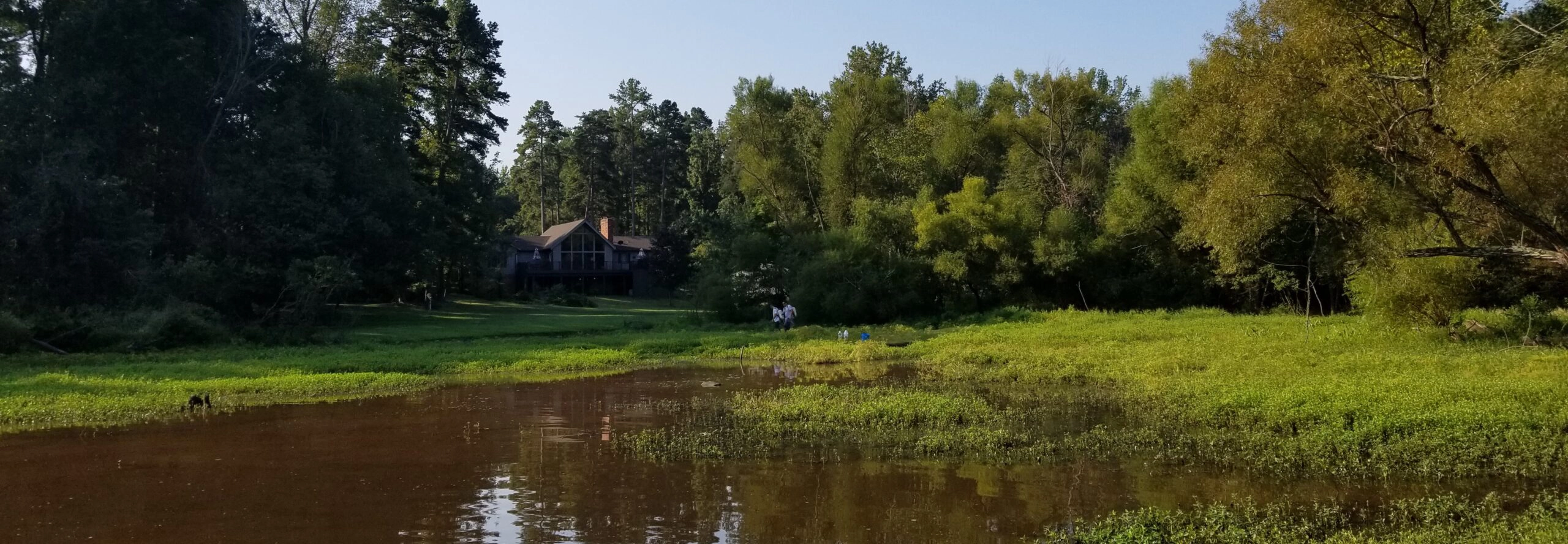
Do’s and Don’ts for the Maintenance of Ponds in North Carolina
Pond Maintenance is a must for a healthy, clean environment for aquatic plant life, fish and waterfowl in your pond or lake. A little attention now helps with the ongoing maintenance of a pond. In addition, consistent pond management will save you money in the long run.
To help you make good decisions for your pond’s health, take a look at our Do’s Don’ts list for simple advice for maintenance of ponds.
Table of Contents
Keep your pond free of yard waste
Never dump toxic chemicals in your pond
Maintain a fertilizer-free buffer zone around the pond’s shoreline
Do not overfeed fish
Consult a professional before introducing new aquatic plants
Do not let algae and noxious weed growth go unchecked
Consider an annual pond maintenance plan
Additional Pond Maintenance Resources
Yard and Landscape Waste
A smart tip to help you with pond care! Do not dump yard waste – grass clippings, mulch, brush, etc. – in your pond. As these items decay they contribute to the sediment level on the bottom of your pond, which in turn reduces oxygen levels and increases carbon dioxide in the water, which can promote the growth of algae and harmful weeds.
Remove any “human” trash such as plastic grocery bags, soda bottles and other material that aquatic life can get trapped in and lead to a less appealing pond or lake.
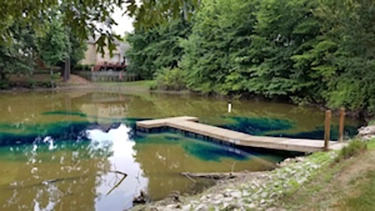
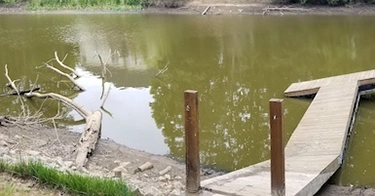
Fertilizing Close To A Pond’s Shoreline
Another factor in controlling weeds in ponds is managing fertilization near your pond’s shoreline. Algae blooms can be the result of runoff of fertilizer-based phosphorus and nitrogen. Extremely high concentrations of these nutrients can be the fuel for increases in algae blooms and other aquatic vegetation.
(Read more about Algae Blooms their causes and the harm they can do)
To help control the runoff of fertilizer into your pond or lake, follow these four steps:
Maintain a fertilizer-free safe zone along the shoreline of your pond. We suggest a minimum of 15-20 yards.
Do not fertilize on barren land, rock, cement or other hard surfaces near a pond. Without the ability to be absorbed the run-off factor increases significantly.
Only after a rain storm and several days before additional rain is forecast.
Don’t overwater grass near a pond or lake that has been fertilized.
Manage Fish Feed Quantity
If you feed fish, waterfowl, or other animals in or around your pond, manage the feed output based on the manufacturer’s recommendations. If not consumed, the feed will decompose in a pond and contribute nutrients to weed growth.
Only use food designed and manufactured for feeding fish and other aquatic life.
Adding Plants In Ponds
It is very important to understand which plants are appropriate for your pond. Research the plant life you are considering for your pond or lake. Several factors to consider:
Are the aquatic plants right for the size and depth of your pond?

Green Carp can help control aquatic plants.
Geography matters. Are the plants appropriate for your temperate zone?
Will the new aquatic plant life cohabitate well with current plant life and other inhabitants of your pond?
Is the plant considered a weed or will it benefit your pond?
Visit Our Algae & Weed Identification Page To Learn More About Algae & Weeds
Consider similar factors when introducing fish, waterfowl and other animal life to your pond. Fishing in your pond can add a great leisure time activity if you plan on using it as a recreational resource. Be sure to investigate what regulations might be in place in your state concerning the type of fish you can add to your pond.
Need help determining the right fish for your pond, Pond Lake Management can help, complete our assessment form or give us a call.
Check Your Pond Regularly For Weed And Algaes Growth.
Like most problems, the sooner you catch it and determine a solution the easier it is to fix – not to mention more affordable! The same goes for pond maintenance. If you are noticing weeds and/or algae starting to overtake your pond or lake deal with it sooner than later.
Whether the answer to your weed problem is a manual solution, pond chemicals or another alternative, give a pond professional a call. Once your pond is overrun with plant growth it becomes a major project to get it under control.
Not sure whether your aquatic plant growth is a problem or not? Consult our Algae and Weed Identification page for more information.
